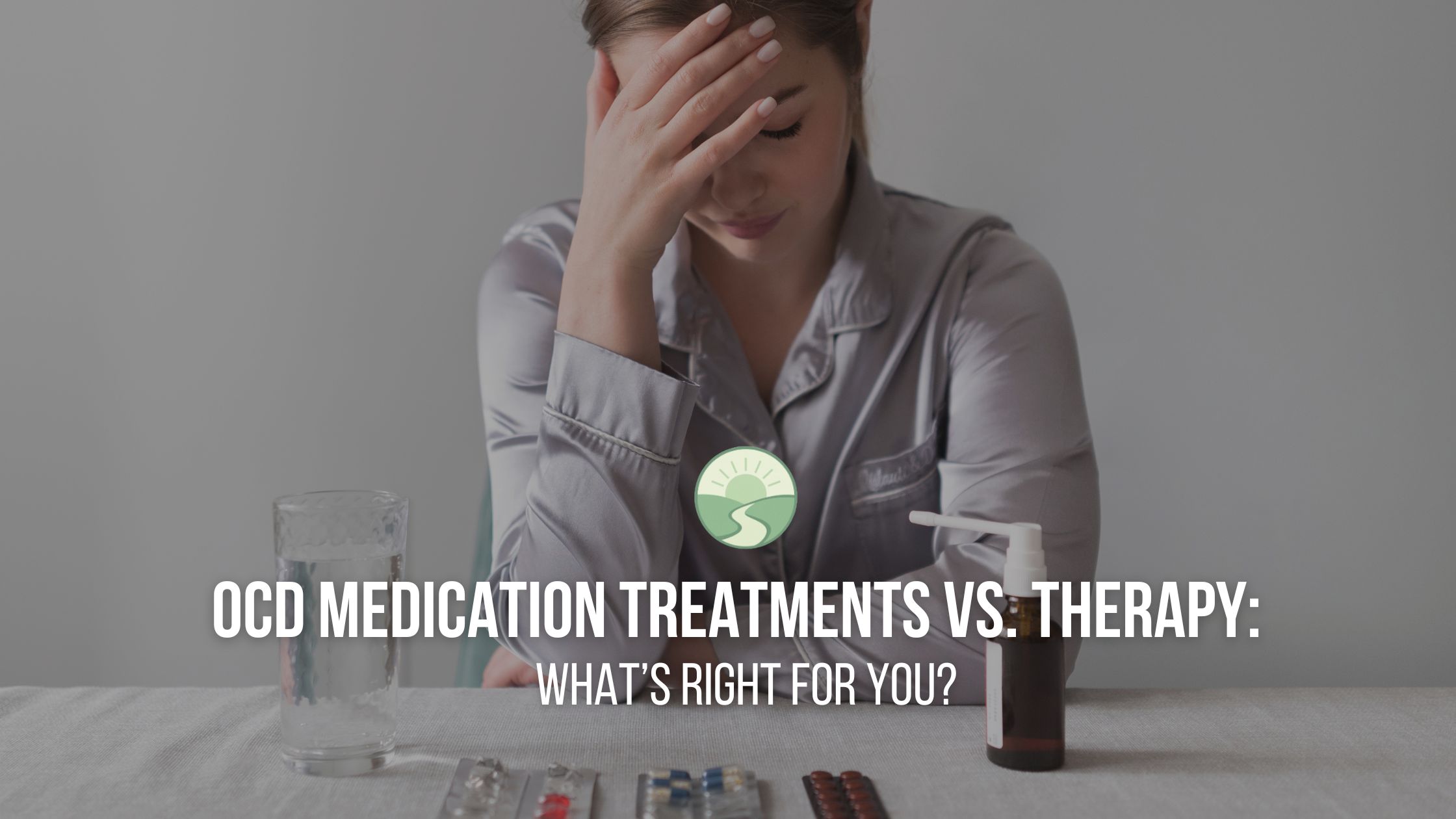Living with obsessive-compulsive disorder (OCD) can feel like being stuck in a cycle of intrusive thoughts and repetitive behaviors that disrupt daily life. While every person’s experience is unique, treatment often comes down to a key decision: should you focus on OCD medication treatment in Maryland or opt for therapy-based approaches—or combine both?
Understanding the differences, benefits, and considerations for each path can help you make a decision that’s best suited to your needs, lifestyle, and long-term mental health goals.
Understanding OCD and Why Treatment Choice Matters
OCD is not simply about liking things neat or organized—it’s a clinically recognized mental health condition that can cause significant distress and interfere with daily functioning. Symptoms may include recurring unwanted thoughts, compulsive rituals, and anxiety that worsens without intervention.
Because OCD is a complex condition, treatment plans often include medication management services that address the brain’s chemical imbalances, behavioral strategies that reshape thought patterns, or a combination of both.
When deciding on the right path, it’s important to understand that there’s no one-size-fits-all solution. What works for one person might not work for another, making an individualized approach essential.
The Role of OCD Medication Treatments
OCD medication treatment often focuses on prescription options that target serotonin imbalances in the brain, as research has shown that serotonin plays a key role in OCD symptoms. These medications may include selective serotonin reuptake inhibitors (SSRIs) or other antidepressants specifically approved for OCD.
Benefits of Medication Treatment:
- Symptom Reduction: Can lower the intensity and frequency of intrusive thoughts and compulsions.
- Improved Daily Functioning: Makes it easier to focus at work, school, or in relationships.
- Fast Symptom Relief for Some: Certain individuals notice changes within weeks.
Considerations:
- Side Effects: These can range from mild (nausea, headaches) to more significant (sleep changes, sexual side effects).
- Time to Full Effect: While some see improvements quickly, others may need several weeks or medication adjustments.
- Regular Monitoring: Ongoing follow-ups are necessary to ensure the medication remains effective.
The Role of Therapy-Based Treatments
While medications address the neurochemical aspects of OCD, therapy works to change thought patterns and behaviors. It focuses on building coping strategies, reducing compulsive responses, and teaching skills to handle intrusive thoughts without reinforcing them.
This approach is particularly effective for individuals who prefer long-term skill-building and strategies that can be maintained without ongoing prescriptions.
Benefits of Therapy-Based Treatments:
- Skill Development: Builds lifelong tools for managing symptoms.
- No Medication Side Effects: Avoids the risks associated with pharmaceuticals.
- Addresses Core Behaviors: Helps prevent relapse by targeting underlying thought patterns.
Considerations:
- Time Investment: Sessions require consistent attendance and effort.
- Slower Initial Relief: May take time before results are noticeable.
Combination Treatment: Finding the Balance
For many individuals, the most effective approach is combining both medication and therapy. This is especially true for those with moderate to severe symptoms, where one treatment alone may not be sufficient.
A mental health provider with therapy and medication in Maryland can coordinate an integrated plan—prescribing medications to reduce symptoms while also providing behavioral strategies for long-term management.
Precision Care with Genetic Testing
Not all medications work the same for every individual, and trial-and-error can be frustrating. That’s where medication management with GeneSight testing comes in.
GeneSight testing uses your DNA to predict how you might respond to certain medications, helping providers choose the most effective option with the least side effects. This personalized approach can:
- Reduce trial-and-error prescribing
- Shorten the time to symptom relief.
- Increase treatment adherence
Accessibility Through Virtual Care
For many, accessing care can be a barrier—whether due to location, busy schedules, or personal preference. Services like a virtual psychiatrist in Baltimore make it easier to get high-quality care without leaving home.
Benefits include:
- Convenience: No commute or travel time
- Privacy: Discreet sessions from the comfort of your space
- Flexibility: Easier to schedule around work or family obligations
When to Consider Medication Over Therapy
Medication may be a better first step if:
- Your symptoms are severe and significantly interfere with daily functioning.
- You’ve tried therapy but found limited improvement.
- You need faster symptom relief to manage urgent life demands.
When to Consider Therapy Over Medication
Therapy may be preferable if:
- You prefer non-medication-based approaches.
- Your symptoms are mild to moderate.
- You want tools to manage symptoms long-term without dependency on prescriptions.
The Role of Ongoing Support
No matter which path you choose, ongoing support from your provider is essential. A treatment plan should evolve based on your progress, side effects, and life changes.
If you’re looking for both convenience and continuity, options like an online psychiatrist near me allow you to maintain regular check-ins and adjust your plan without disruption.
Deciding What’s Right for You
Choosing between medication and therapy—or a combination—requires:
- Accurate Diagnosis: Ensuring OCD is the correct diagnosis before starting treatment.
- Open Communication: Discussing concerns, goals, and preferences with your provider.
- Willingness to Adjust: Being open to modifying your plan if results aren’t optimal.
Your decision should be guided by professional advice, personal preferences, and evidence-based options tailored to your specific needs.
Moving Forward with Confidence
OCD can be challenging, but you’re not without options. Whether you choose medication, therapy, or both, the key is finding a plan that works for you, fits your lifestyle, and provides sustainable results.
Working closely with experienced providers—whether in-person or online—ensures your care is personalized and adaptable as your needs evolve.
Your treatment is a partnership between you and your care team, built on trust, expertise, and your unique mental health journey.
Key Takeaways
- OCD treatment is highly individual—what works for one person may not work for another.
- Medication can help reduce symptoms quickly, while therapy builds long-term coping strategies.
- Combining both approaches often provides the most comprehensive results.
- Genetic testing like GeneSight can make medication management more precise.
- Virtual and online psychiatric care improves access and flexibility.
FAQ’S:
Yes, some people manage OCD effectively with therapy-based treatments that build coping strategies and address thought patterns without prescriptions.
Most people start noticing improvements within 4–6 weeks, but timelines vary depending on the medication and individual response.
It’s a genetic test that helps providers choose the most effective medication for you based on how your body may respond.
Absolutely. Treatment plans can be adjusted at any time based on your progress, needs, and preferences.
Yes, for many people, virtual sessions provide the same quality of care with added convenience and privacy.

